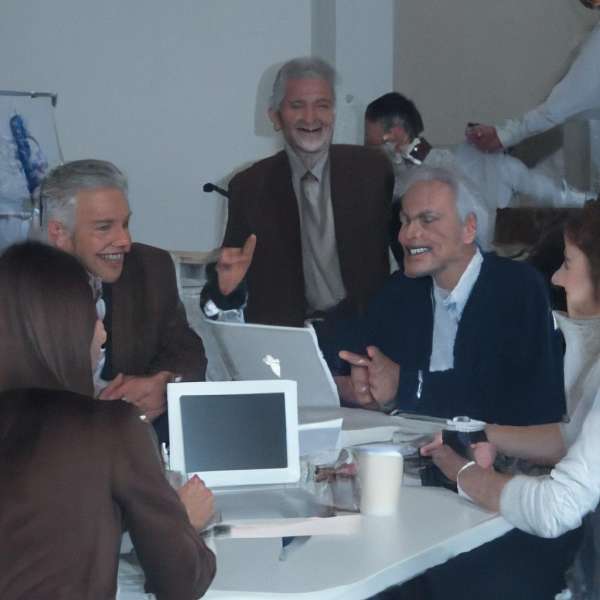In the delicate landscape of estate planning, where wishes, assets, and legacies intertwine, one essential yet often overlooked element emerges—family meetings. These gatherings, typically associated with sharing a meal or celebrating milestones, can transform into powerful forums for discussing the distribution of wealth and values across generations. Imagine a round table where family members unite not only to reflect on their shared history but also to navigate the future with clarity and intention. In this article, we will explore the vital role family meetings play in estate planning, revealing how open communication and collaborative decision-making can foster understanding, reduce conflict, and ensure that your legacy is honored in the way you envision. In an era where conversations about financial matters can feel daunting, the family meeting stands as a beacon of transparency, guiding families toward informed and harmonious estate resolutions.
Understanding Family Dynamics in Estate Planning
Family meetings serve as a crucial platform for facilitating open dialogue about estate planning. During these gatherings, family members can openly discuss their views, concerns, and aspirations regarding wealth distribution, roles in management, and any personal wishes associated with the estate. This communication can help bridge gaps in understanding and alleviate potential tensions that might arise later. Participating in such meetings fosters transparency, allowing everyone to feel included and valued in the decision-making process.
Often, family dynamics can complicate estate planning, making it essential for members to address potential conflicts early on. By establishing a framework for discussion, meetings can help clarify roles and responsibilities, minimizing misunderstandings. Key topics to cover might include:
- Distribution goals: What are the individual wishes regarding assets?
- Role allocations: Who will take charge of specific responsibilities?
- Future expectations: What do family members hope to achieve with the estate?
- Conflict resolution: How can disagreements be handled constructively?
To effectively manage these discussions, creating a structured agenda can be beneficial. Below is a sample table that outlines a potential agenda for a family estate planning meeting:
| Time | Agenda Item | Facilitator |
|---|---|---|
| 10:00 AM | Introductions and Objectives | Family Elder |
| 10:30 AM | Discussion on Asset Distribution | Estate Planner |
| 11:00 AM | Roles and Responsibilities | Chief Executor |
| 11:30 AM | Next Steps and Q&A | All Participants |
By participating in family meetings, members not only share their perspectives but also build a collegial environment where trust can grow. The shared focus on transparent estate planning can pave the way for smoother transitions in the future, reducing emotional strain and promoting familial harmony.

The Power of Open Communication during Family Meetings
Family meetings serve as a crucial touchpoint for open dialogue, particularly when discussing sensitive topics such as estate planning. Engaging in candid conversations not only builds trust among family members but also paves the way for a more inclusive decision-making process. By fostering an environment where everyone feels comfortable sharing their thoughts, families can address potential misunderstandings before they escalate into conflicts.
Key benefits of transparent communication during these gatherings include:
- Clarifying Expectations: Discussing expectations around inheritances, responsibilities, and personal wishes can help mitigate surprises later on.
- Encouraging Participation: Inviting all family members to voice their opinions ensures that every perspective is valued, reinforcing the importance of collective input.
- Building Relationships: Regular communication strengthens family bonds, creating a supportive atmosphere where members unite toward common goals.
To facilitate a successful family meeting, consider implementing structured discussions. Below is a simple format that can guide your conversations:
| Agenda Item | Time Allotted | Responsible Person |
| Introduction & Purpose | 5 minutes | Family Chair |
| Financial Overview | 15 minutes | Financial Advisor |
| Sharing Personal Wishes | 20 minutes | All Members |
| Addressing Concerns & Questions | 15 minutes | All Members |
| Next Steps & Closing | 5 minutes | Family Chair |
Utilizing this format can help families stay organized and focused during discussions, ensuring that everyone’s voice is heard, which ultimately leads to a more harmonious approach to estate planning.

Strategies for Effective Decision-Making in Estate Discussions
In the context of estate discussions, ensuring clarity and consensus among family members is crucial for making effective decisions. One of the primary strategies involves establishing ground rules for communication. This can help create a safe space for open dialogue, where each member feels valued and heard. Consider setting the following guidelines:
- Active Listening: Encourage participants to listen to each other without interrupting.
- Respectful Dialogue: Emphasize the importance of respectful communication, even when disagreements arise.
- Confidentiality Assurance: Remind all participants that discussions are private and should not be shared outside the meeting.
Another effective strategy is to utilize a structured decision-making process. This can include outlining specific objectives for each meeting and assigning roles to family members. Using an organized approach helps in avoiding conflicts and ensuring that every voice contributes to the outcome. For example, you might explore the following roles:
| Role | Description |
|---|---|
| Facilitator | Guides the discussion and keeps the meeting on track. |
| Note-Taker | Records key points and decisions made during the meeting. |
| Timekeeper | Ensures that each agenda item is discussed within a set timeframe. |
leveraging visual aids can enhance understanding and retention of the information presented. Consider creating charts or diagrams that illustrate key concepts of the estate plan or financial distributions. A visual representation can often clarify complex information and prompt more engaged discussions. Additionally, employing scenarios or hypothetical situations can encourage creative thinking and problem-solving among family members, making the decision-making process less intimidating.

Creating a Collaborative Environment for Legacy Planning
In the realm of estate planning, fostering a collaborative atmosphere among family members can be transformative. By convening regular family meetings, you can create a space where everyone feels heard and valued, laying the groundwork for a successful legacy plan. These gatherings not only promote open dialogue but also encourage participants to share their thoughts, concerns, and aspirations regarding the family legacy.
During these discussions, it is vital to facilitate active participation. Consider implementing the following strategies to enhance collaboration:
- Establish Ground Rules: Set guidelines that promote respect, patience, and active listening. This creates a safe space for honest dialogue.
- Encourage Equal Input: Make sure everyone has a chance to voice their opinions, regardless of age or status within the family.
- Utilize Visual Aids: Present charts or diagrams to illustrate complex topics related to the estate plan, making it easier for everyone to grasp.
Furthermore, incorporating technology can elevate these meetings. Enabling virtual participation allows family members who may be geographically distant to engage. Here’s a simple table to summarize potential meeting formats:
| Format | Benefits | Drawbacks |
|---|---|---|
| In-Person Meetings | Fosters strong connections; promotes engagement. | Logistical challenges; scheduling conflicts. |
| Virtual Meetings | Convenient for distant family members; saves time. | Lack of personal touch; potential tech issues. |
| Hybrid Meetings | Balances presence and accessibility; inclusive. | May require complex setup; varied engagement. |
By investing time and effort into creating a nurturing environment for these discussions, families can work together harmoniously to safeguard their legacies. Collaborative legacy planning not only solidifies the family bond but also ensures that every voice contributes to a holistic vision for the future.
Final Thoughts
family meetings serve as a cornerstone in the often complex landscape of estate planning. By fostering open communication, clarifying intentions, and addressing potential concerns, these gatherings empower families to navigate the intricacies of their legacies with unity and understanding. As the saying goes, “The best time to plant a tree was twenty years ago. The second best time is now.” Initiating a family meeting may feel daunting, but the insights gained and the relationships strengthened can provide invaluable clarity and peace of mind for years to come. As you embark on this journey, remember that your family’s legacy is not just about assets, but also about the values and memories you choose to carry forward together. Embrace the process, encourage candid conversations, and let your family’s shared vision blossom through the careful planning of your estate. After all, it is often the discussions we have today that lay the foundation for tomorrow’s harmony.


